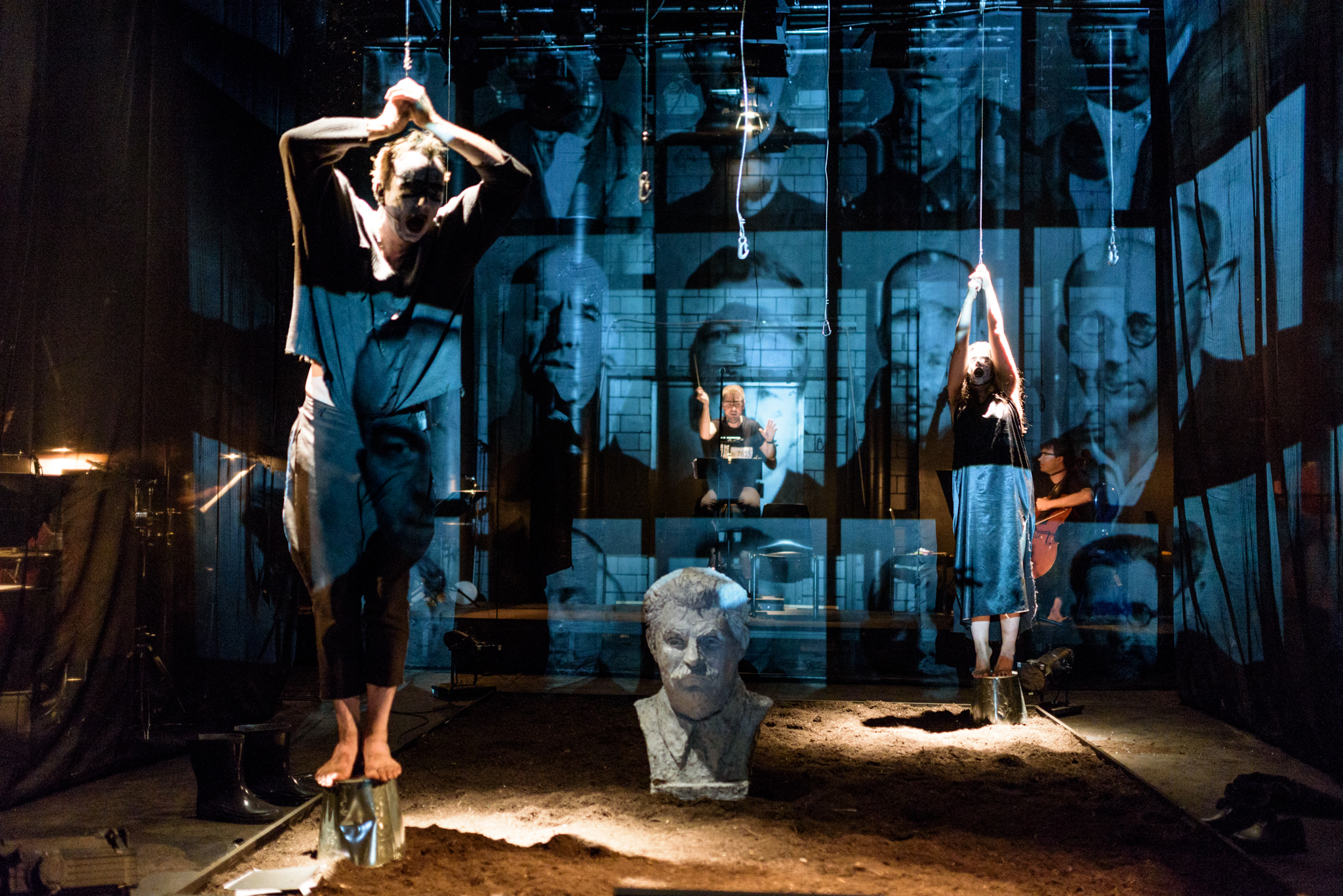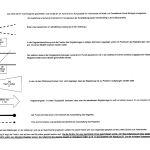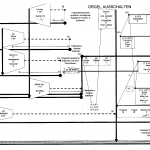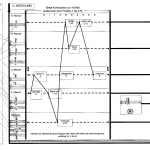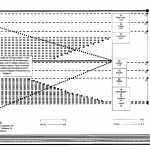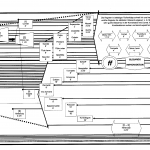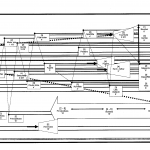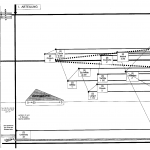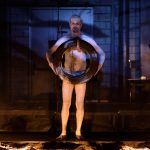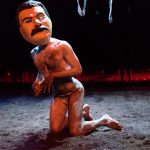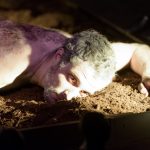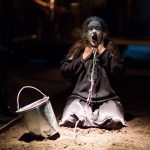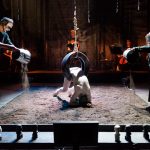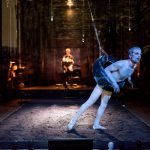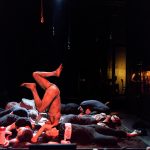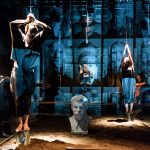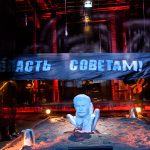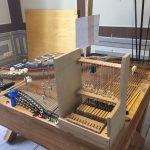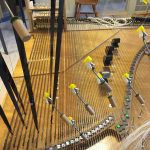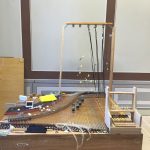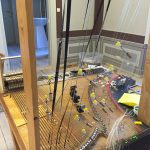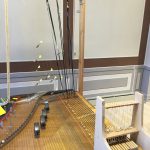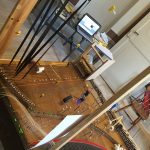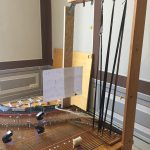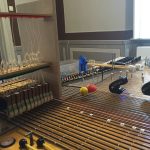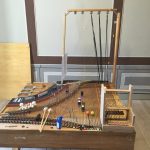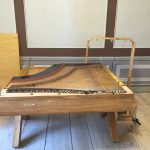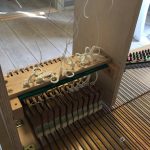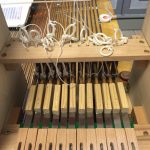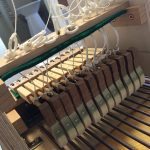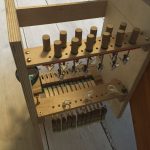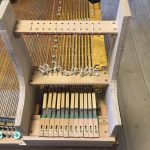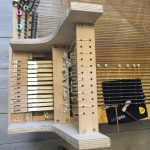The composer Marina Khorkova lives and works in Moscow, Russia and Berlin, Germany. From 2000 to 2005, she studied composition at the Moscow Conservatory. In 2008, she received a grant by Paul Sacher Stiftung in Basel, Switzerland followed by a grant of the DAAD, which allowed her to follow up on her studies of composition by Prof. Caspar Johannes Walter at the Staatliche Hochschule für Musik und Darstellende Kunst Stuttgart, Germany. She was also granted residency fellowships by Villa Aurora (Los Angeles, CA, USA), Schloss Soltide (Stuttgart, Germany), Künstlerhof Schreyhan (Lüchow, Germany), Villa Sträuli (Winterthur, Schweiz), Künstlerhaus Otte (Eckernförde, Germany).
She received numerous awards and distinctions, from organisations including the Kunststiftung Baden-Württemberg, the Lieselotte Klein Foundation Berlin and the Oskar and Vera Ritter Foundation. In 2011, she was awarded the DAAD Prize for Outstanding Artistic Achievement.
2009
I have a special affinity for the music of the 11th and 12th centuries, which has influenced my opera scene ‘Les Aveugles’ (2009). The work is based upon the “Kryki”, a manuscript from the time that has never been entirely deciphered.
Historical context
In 998, Russia adopted Christianity and its rituals from Byzantium. In the beginning, one used the canonic texts for the church service, which had been translated from Greek into Church Slavonic language. At the beginning of the XIth century, the original Russian hymnography has been developed.
The liturgic poetry expressed the foundations of Christian catechism, which is why words played a major role in both rituals and music.
As canonic texts had the highest priority, more attention has been given to lyrics than to music. That is why words have a big influence on the formation of the old-Russian church songs system. One could say that the music was only a shadow of the word, a sort of clarification of the text without its own proper function.
I would now like to give an overview of the development of that notation. Here you can see the notation from the XIth to the XVIIth century.
In the XI. century church music was based on certain systems.
KONDAKARI SONG
This type of religious singing had been taken over from Byzantium to Russia between the XIth and XIVth century and further developed. Kondakari song had been used during the church service as an insertion in the syllabic “znamenny” song. This would be however only the case in special occasions such as church holidays and festivities. It is believed that in the early stage of church music in Russia, kondakari song belonged to a soloistic genre and thus resembled a lot to byzantine psalm-singing.
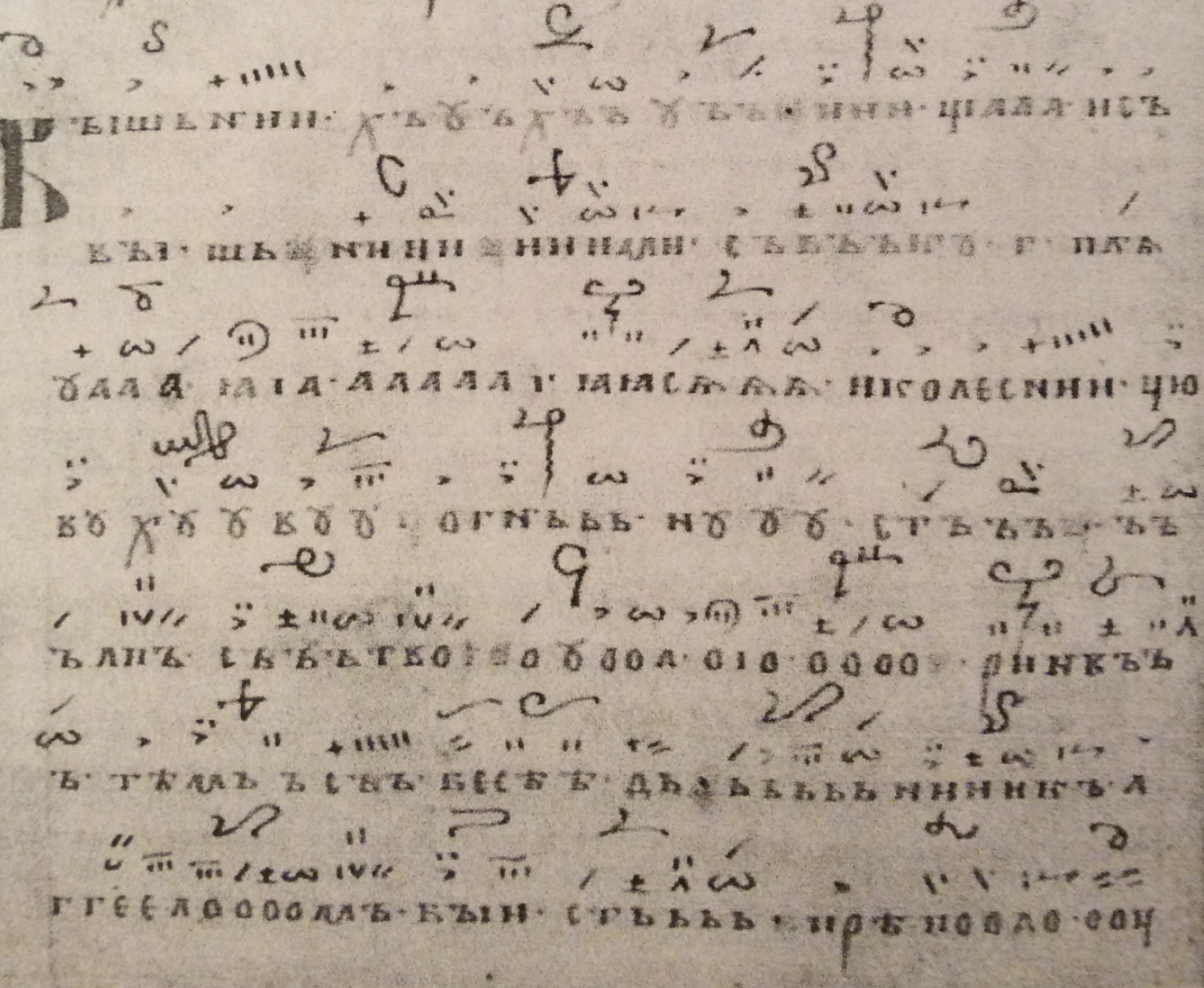
„LES AVEUGLES“
In my operatic scene „LES AVEUGLES“ (2010, https://we.tl/t-am2imZmoLa), I made a special mix between texts of Maurice Maeterlinck’s The blind (published 1890; first performed 7 December 1891). Each part has graphic signs from the old Russian music of XI.-XII. century. What I was mostly interested in was to see how contemporary musicians interpret these signs in their sound improvisation on acoustic instruments.
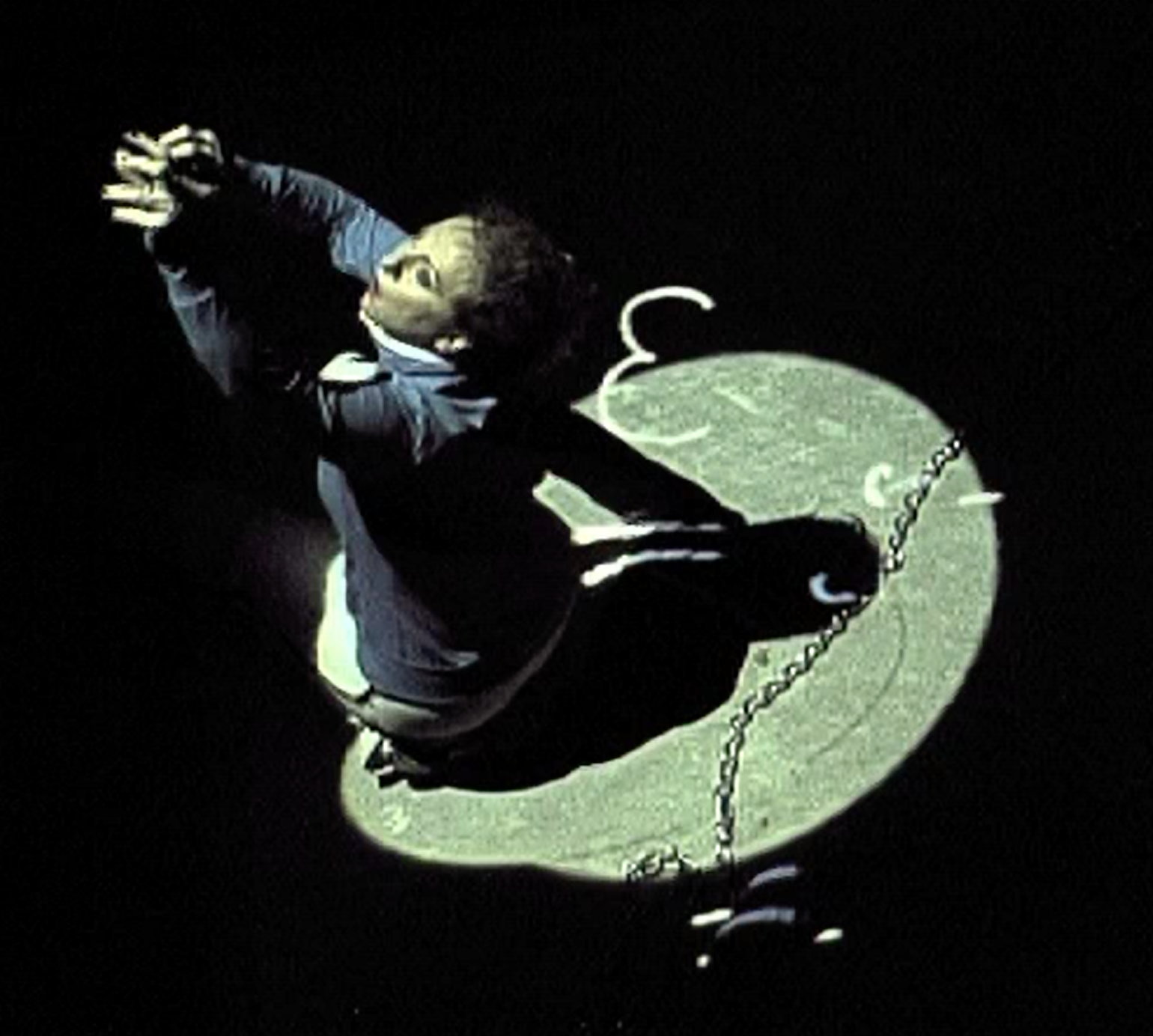
VORderGRENZE (2010)
My composition VORderGRENZE (2010) for clarinet, cello, and prepared piano deals with the edges of life: existential sounds on the border of life and death represented by different breath sounds, reinforced with partials and translated into the instrumental parts. The fight to the last breath is the essential message of the piece, which is expressed by some extreme sound gestures. Various processes and characteristics of inhalation and exhalation were tried in quasi sound-photographs. Suffocating breath sounds, for example, are chaotic and noisy. Last breaths have a dark timbre with delicate nuances (such as wheezing) during inhalation and exhalation. The instrumentalists were also directed to blow on megaphones and this natural and quiet breathing was compared and linked, as it were, with the inhalation and exhalation of the instrumental sounds.
MEDLUM (2010)
for electronics, 2 percussionists, e-guitar & video.
Velimir Khlebnikov developed the artificial language „Zaum“ which was supposed to be universal, a language of stars or even birds. He was fascinated by Slavonic mythology and concepted a synthesis of the Eurasian intellectual world. He considered himself to be the leader of the globe, he practiced „the science of fate“, which he positioned on limits between poetry and math, and which had enabled him to predict the fall of the Tsar’s empire, 2nd world war and the liberation of Afrika from the colonizers.
Few words about the video project:
I classified all the phonems of the poem by Velimir Khlebnikov «Beschwörung durch Lachen» (1910):
Ihr Lacherer, schlagt die Lache an!
Ihr Lacherer, schlagt an die Lacherei!
Die ihr vor Lachen lacht und lachhaftig lachen macht,
schlagt lacherlich eure Lache auf!
Lachen verlachender Lachmacher! Ungeschlachtes Gelachter!
Lachen lacherlicher Lachler, lach und zerlach dich!
Gelach und Gelacher,
lach aus, lach ein, Lachelei, Lachelau,
Lacherich, Lacherach.
Ihr Lacherer, schlagt die Lache an!Ihr Lacherer, schlagt an die Lacherei!
and presented them with different formants for my sounds. Furthermore, I have developed these formants in the tape-recording as well as in the acoustic sounds. In these sounds I have emphasised the following: the noise of phenomena or the repeating root – laughter – like a mechanical repetition of a loud sound. For the tape, I used ten interpretations of one reciter in order to discover new characteristics of that song. I have strongly modified the sounds from the recording of the prepared Cello, and tried to “mirror flasely” the acoustic sounds subsequently.
ALEPH
In 2011, Marina was granted the Ernst-Krenek-Preis der Stadt Wien at Impuls festival in Graz, Austria that was joined to a residency as composer-in-residence in Austria.
Her work ALEPH premiered performed by Ensemble Klangforum Wien in the context of the festival steirischer herbst 2012 in Graz: https://musikprotokoll.orf.at/2012/werk/aleph.
INSTALLATIONEN
In INSTALLATIONEN (2011), I worked with half pulled registers: each register having 5 possible positions, for example, position 1-5 in trombone register – each of these positions had a different sound. I notated every position graphically as well as its resulting pitch. Experimental techniques can sound like electronic music.
In 2013, Marina was awarded the Kompositionspreis of Staubach Honoria and a grant by the Internationalen Ferienkurse Darmstadt in 2014 on which her work klangNarbe was performed by Ensemble Accanto for the first time.
Her work «dissonance of time» (with the support of the Ernst von Siemens Music Foundation) was premiered in the course of the festival Bludenzertage zeitgemäßer Musik, Austria performed by Ensemble soundinitiative, Paris in 2015.
«et cetera» (ARCHIPEL GULAG)
The production of her chamber opera «et cetera» (ARCHIPEL GULAG) was premiered in June 2016.
Her works have been broadcasted multiple times, such as by Deutschlandfunk, WDR 3, ORF, and Radio Swiss Classic.
In 2013, she was selected by the CD label Wergo for a series of CDs of the Deutsche Musikrat. The CD is published in a coproduction by Deutschlandfunk in 2016:
https://www.amazon.de/Klangnarbe-Marina-Khorkova/dp/B01CQ2RWBY
In 2017, she was granted the Berlin-Rheinsberger Kompositionspreis.
In 2016, in collaboration with the pianist Henri Seiferth, Marina managed to develop a tool that she called “multiphonics-piano”. She bought a piano from the 19th century, which has a special structure of strings: they are all stretched parallel to each other without intersections and additional beams. Henri Seiferth has removed the body of the instrument, the keyboard, and all the hammers, in general, only the strings and resonating deck remained (on which, in fact, these strings are tightened).
Then she developed two designs for her plays: one with stretched tapes and lines, and the second is a hammer-like construction for the performance of multiphonics in the bass register.
She completely prepared this instrument.
Here is partial documentation from a concert in which she was awarded the Berlin Composer’s Prize 2017.
protonwerk
2017: protonwerk for proton ensemble Bern:
In the course of various festivals, Marina Khorkova participated in master classes of Brian Ferneyhough, Georges Aperghis, Mark Andre, Beat Furrer, Brice Pauset, Toshio Hosokawa, Rebecca Saunders, Georg Friedrich Haas, Peter Ablinger, Martijn Padding, Roland Moser, and Frédéric Durieux.
Marina’s works have been performed worldwide by such as New York Philharmonic, Ensemble Klangforum Wien, Trio Accanto (Freiburg), SWR Vocalensemble (Stuttgart), the Thürmchen Ensemble and Ensemble Handwerk (Cologne), Ensemble Ascolta (Stuttgart), Ensemble LUX:NM and Kairos Quartet (Berlin), Ensemble Reflexion K (Eckernförde), the soundinitiative (Paris), the Proton Ensemble (Bern), the Camerata Variabile (Basel), Ensemble TaG (Winterthur), the Lyris Quartet (Los Angeles), the Vinca Quartet (USA), Ensemble Nostri Temporis (Kiev), the Studio for New Music, the Mark Pekarsky Percussion Ensemble, the State Academic Symphony Orchestra of the Russian Federation and the Tchaikovsky Symphony Orchestra (Moscow).
Her works have been premiered at numerous festivals: the Festival CONTACT! Co-Presentation of the New York Philharmonic and National Sawdust, the MicroFest in Los Angeles 2015, the Sommer in Stuttgart 2015, the remusic festival S-Petersburg 2015, the Ars Amatoria – Liebeskunst in Zürich-Basel 2015, the musikprotokoll series at the Steirischer Herbst Festival 2012, the Wittener Tage für neue Kammermusik 2012, Unerhörte Musik im BKA 2012 and 2015 (Berlin), the tonArt-Festival (Esslingen), at the International Conference “Micronality. Praxis & Utopia” (Stuttgart), The New Music Triduum (Krakow), IN-BETWEEN Berlin < > St. Petersburg, the Multimediales Festival “Sinfonie der Bilder” (Stuttgart), a double portrait concert as part of the “frau musica (nova)” series presented by Deutschlandfunk (Cologne), the project “Musikalische Lyrik – Das Lied als Experiment” in cooperation with the Neuen Vokalsolisten Stuttgart and the “Moscow Autumn” festival of new music.

